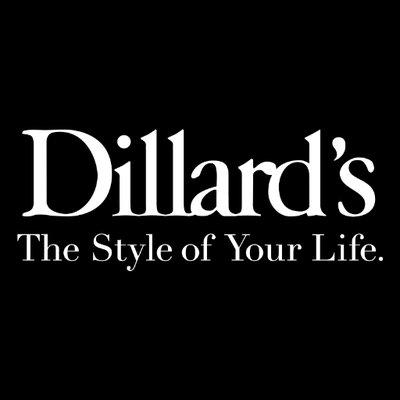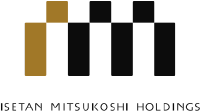Woolworths Holdings Ltd
JSE:WHL

| US |

|
Johnson & Johnson
NYSE:JNJ
|
Pharmaceuticals
|
| US |

|
Berkshire Hathaway Inc
NYSE:BRK.A
|
Financial Services
|
| US |

|
Bank of America Corp
NYSE:BAC
|
Banking
|
| US |

|
Mastercard Inc
NYSE:MA
|
Technology
|
| US |

|
UnitedHealth Group Inc
NYSE:UNH
|
Health Care
|
| US |

|
Exxon Mobil Corp
NYSE:XOM
|
Energy
|
| US |

|
Pfizer Inc
NYSE:PFE
|
Pharmaceuticals
|
| US |

|
Palantir Technologies Inc
NYSE:PLTR
|
Technology
|
| US |

|
Nike Inc
NYSE:NKE
|
Textiles, Apparel & Luxury Goods
|
| US |

|
Visa Inc
NYSE:V
|
Technology
|
| CN |

|
Alibaba Group Holding Ltd
NYSE:BABA
|
Retail
|
| US |

|
JPMorgan Chase & Co
NYSE:JPM
|
Banking
|
| US |

|
Coca-Cola Co
NYSE:KO
|
Beverages
|
| US |

|
Walmart Inc
NYSE:WMT
|
Retail
|
| US |

|
Verizon Communications Inc
NYSE:VZ
|
Telecommunication
|
| US |

|
Chevron Corp
NYSE:CVX
|
Energy
|
Utilize notes to systematically review your investment decisions. By reflecting on past outcomes, you can discern effective strategies and identify those that underperformed. This continuous feedback loop enables you to adapt and refine your approach, optimizing for future success.
Each note serves as a learning point, offering insights into your decision-making processes. Over time, you'll accumulate a personalized database of knowledge, enhancing your ability to make informed decisions quickly and effectively.
With a comprehensive record of your investment history at your fingertips, you can compare current opportunities against past experiences. This not only bolsters your confidence but also ensures that each decision is grounded in a well-documented rationale.
Do you really want to delete this note?
This action cannot be undone.

| 52 Week Range |
4 783
6 235
|
| Price Target |
|
We'll email you a reminder when the closing price reaches Zac.
Choose the stock you wish to monitor with a price alert.

|
Johnson & Johnson
NYSE:JNJ
|
US |

|
Berkshire Hathaway Inc
NYSE:BRK.A
|
US |

|
Bank of America Corp
NYSE:BAC
|
US |

|
Mastercard Inc
NYSE:MA
|
US |

|
UnitedHealth Group Inc
NYSE:UNH
|
US |

|
Exxon Mobil Corp
NYSE:XOM
|
US |

|
Pfizer Inc
NYSE:PFE
|
US |

|
Palantir Technologies Inc
NYSE:PLTR
|
US |

|
Nike Inc
NYSE:NKE
|
US |

|
Visa Inc
NYSE:V
|
US |

|
Alibaba Group Holding Ltd
NYSE:BABA
|
CN |

|
JPMorgan Chase & Co
NYSE:JPM
|
US |

|
Coca-Cola Co
NYSE:KO
|
US |

|
Walmart Inc
NYSE:WMT
|
US |

|
Verizon Communications Inc
NYSE:VZ
|
US |

|
Chevron Corp
NYSE:CVX
|
US |
This alert will be permanently deleted.
Intrinsic Value
There is not enough data to reliably calculate the intrinsic value of WHL.
The Intrinsic Value is calculated as the average of DCF and Relative values:
| UK |

|
Next PLC
LSE:NXT
|
|
| US |

|
Dillard's Inc
NYSE:DDS
|
|
| MX |

|
El Puerto de Liverpool SAB de CV
BMV:LIVEPOLC-1
|
|
| CN |
C
|
CCOOP Group Co Ltd
SZSE:000564
|
|
| US |

|
Macy's Inc
NYSE:M
|
|
| JP |

|
Isetan Mitsukoshi Holdings Ltd
TSE:3099
|
|
| US |

|
Nordstrom Inc
NYSE:JWN
|
|
| JP |
J
|
J.Front Retailing Co Ltd
TSE:3086
|
|
| JP |

|
Takashimaya Co Ltd
TSE:8233
|
|
| CN |

|
Easyhome New Retail Group Co Ltd
SZSE:000785
|
Fundamental Analysis
Select up to 3 indicators:
Select up to 3 indicators:
Revenue & Expenses Breakdown
Woolworths Holdings Ltd
Balance Sheet Decomposition
Woolworths Holdings Ltd
| Current Assets | 14.7B |
| Cash & Short-Term Investments | 4.3B |
| Receivables | 1.5B |
| Other Current Assets | 8.9B |
| Non-Current Assets | 26.1B |
| Long-Term Investments | 1.2B |
| PP&E | 15.5B |
| Intangibles | 7.8B |
| Other Non-Current Assets | 1.5B |
| Current Liabilities | 12.3B |
| Accounts Payable | 8.7B |
| Other Current Liabilities | 3.6B |
| Non-Current Liabilities | 17.9B |
| Long-Term Debt | 17.2B |
| Other Non-Current Liabilities | 723m |
Free Cash Flow Analysis
Woolworths Holdings Ltd
| ZAR | |
| Free Cash Flow | ZAR |
Earnings Waterfall
Woolworths Holdings Ltd
|
Revenue
|
79.5B
ZAR
|
|
Cost of Revenue
|
-52.3B
ZAR
|
|
Gross Profit
|
27.3B
ZAR
|
|
Operating Expenses
|
-22.2B
ZAR
|
|
Operating Income
|
5.1B
ZAR
|
|
Other Expenses
|
-2.6B
ZAR
|
|
Net Income
|
2.4B
ZAR
|
WHL Profitability Score
Profitability Due Diligence
Woolworths Holdings Ltd's profitability score is 54/100. The higher the profitability score, the more profitable the company is.
Score
Woolworths Holdings Ltd's profitability score is 54/100. The higher the profitability score, the more profitable the company is.
WHL Solvency Score
Solvency Due Diligence
Woolworths Holdings Ltd's solvency score is 40/100. The higher the solvency score, the more solvent the company is.
Score
Woolworths Holdings Ltd's solvency score is 40/100. The higher the solvency score, the more solvent the company is.
Wall St
Price Targets
WHL Price Targets Summary
Woolworths Holdings Ltd
Dividends
Current shareholder yield for WHL is .
Shareholder yield represents the total return a company provides to its shareholders, calculated as the sum of dividend yield, buyback yield, and debt paydown yield. What is shareholder yield?





































